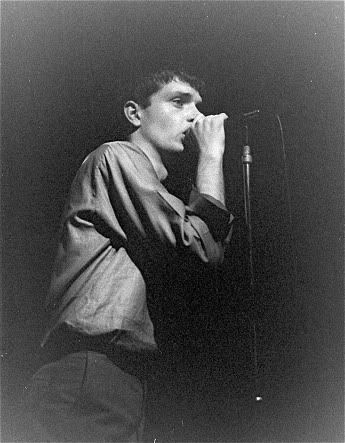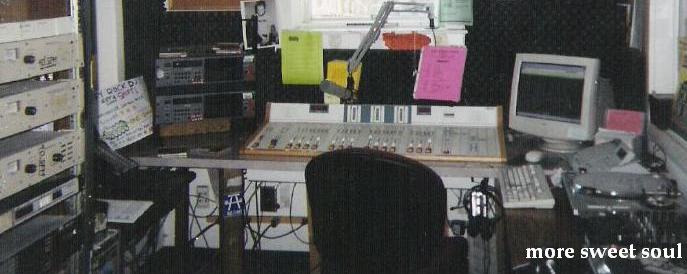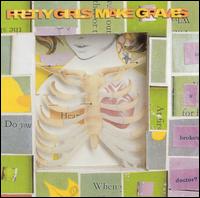No language, just sound, that's all we need know to synchronize love to the beat of the show
Twenty-five years ago today, a young woman awoke from a strange dream. In the dream, she heard The Doors song, The End, playing on her radio.
This is the end, beautiful friend. This is the end, my only friend, the end.
She had spent the night at her parents house with her young daughter, Natalie. She had been having problems with her husband, who was cheating on her with another woman. He was controlling, verbally abusive, and they argued often. He had been dealing with severe health problems, and while she was sympathetic to them, she could no longer deal with his outbursts, infidelity, and lies. She wanted a divorce.
She returned to her house around 10 that morning, not expecting to see him there. A part of her wanted to. But they hadn't ended on great terms the night before. She left Natalie in the car while she went into the house. It was quiet. She didn't call out his name. She saw a note that he had left for her. She went to pick it up, and then saw him out of the corner of her eye. He was kneeling in the kitchen. She was relieved to see him still there. And then she saw the rope around his neck. He had killed himself. At the age of 24, Ian Curtis was dead.
Ian Curtis committed suicide just days before Joy Division was set to begin their first U.S. tour. Some say he did it because he was depressed about all of the problems he was having with his wife, Deborah. Some say that his battle with epilepsy was just too much for him to handle. And some say that Ian had always planned on dying young. Maybe it was none of those things. Maybe it was a little bit of all three. Whatever the reason, you can't help but wonder, "What if...?" What if they had made it to America? What if they had played all the dates, and didn't have to cancel any shows because of Ian's health? What if they had blown everyone away? Things would be so different. Would they have been as influential? Even more so? Would they be revered as much as they are? What would have been the biggest difference? No New Order.
I've always liked New Order more than Joy Division. I probably always will. I heard them first. As a matter of fact, I didn't really start listening to Joy Division until maybe two years ago. I'm not sure why. I guess I just never thought to.
When I was maybe 15 or 16, this guy named Patrick made a mix tape for me. He knew that I loved the Cure, so he filled the mix tape with artists he thought I would like just as much. There were some I had heard before, like Modern English and Depeche Mode. And some artists I had really never heard of, like Bauhaus, The Smiths, and New Order. At that time, it had never really occurred to me to research bands on the internet to find out what else I might like. So I'm glad that Patrick was looking out for me.
I wish I knew where that tape was (it's probably downstairs in one of the boxes I brought back from school after my sophomore year in college) because I can't remember all the songs that were on it. I don't think there was a JD song on it, although it seems like it would be an obvious choice. If there was, I guess I didn't like it that much. But I do remember two certain songs sticking out, both by New Order; All the Way and Regret. The second I heard All the Way, I absolutely fell in love with it. It's just one of those songs that you immediately feel close to. When Bernard sings, "It takes years to find the nerve to be apart from what you've done. To find the truth inside yourself, and not depend on any one," I felt so amazing and inspired and happy. And I think that's why I love New Order so much. Even though many of their songs are melancholy, there always seems to be a underlying theme of hopefulness, like everything will be ok in the end. And I love them for that, for taking you on this journey through all of the difficult things, but then easing your mind about it at the end.
The moment I heard Regret, I sat up and said, "I know this song!" I had heard it on the radio many times, but didn't know who recorded it. It's such a great feeling when you can put a name to a song that you really like.
So that was my first taste of New Order. I started to get their cds after that and they soon became one of my favorite bands. I definitely knew about Ian at that point. Once you start listening to a certain band a lot, it's only natural to want to find out more about their history. And you really can't talk about New Order without talking about Ian, and Joy Division. But still there was nothing inside of me that said, "Hey, go check out a Joy Division song and see if you like it."
And then one day I saw this movie called Series 7: The contenders. It was ok. It's one of those movies that you can watch all the way through because you're seeing it for the first time. But you probably wouldn't buy it on DVD. In the movie, this song kept playing over and over again. I didn't know if I liked it because it was a good song, or because it was being played in every other scene. But it was definitely stuck in my head. I did a little research and found out that it was called Love Will Tear Us Apart.
Little by little, I heard more Joy Division songs, whether it be from friends or on a college radio station. Eventually, I got copies of Closer, Unknown Pleasures, Still, and Substance. Joy Division and New Order give off two completely different vibes. And while I enjoy New Order for their upbeat sounds and hopeful lyrics, I could definitely relate to the dark content of Ian's lyrics and the haunting quality of Joy Division's sound. Everyone can relate to a little bit of both I think.
Last year was probably the height of my education on Joy Division. They were the subject of my research paper for my Music class, so I found out everything that I didn't know before. I also bought a copy of 24 Hour Party People, got a bootleg DVD of their live performances, and read Deborah Curtis' book Touching From A Distance. All of these things gave me a better insight into who Ian was, as an artist and a person in general. If you haven't read Touching From A Distance, I suggest you get a copy immediately. I think everyone who reads it really appreciates Deborah's honesty and openness. I for one couldn't put it down. And you really get to know all the many parts of Ian.
Someone once told me that Ian Curtis' suicide is what prevented Robert Smith from taking his own life. I can't even imagine a world without Disintegration or Faith or Wish. I don't know if it's true, but if it is, I suppose Robert saw that there were things to live for, and that the people who love you that you leave behind are never quite the same. As hard as life is, there's always a reason to keep on going, if only for the hope that good things will happen for you in the future.When Ian died, the remaining members of Joy Division knew that they couldn't go on as Joy Division without him. And for years, and years, they didn't even play any Joy Division songs at all. But they came to realize that the songs that they had written as members of Joy Division were still their songs. Performing them live wouldn't be disrespectful, but rather an amazing way to honor their friend, their bandmate, their brother. Still today whenever they perform Transmission or Love Will Tear Us Apart, Bernard always mentions Ian. And I think that wherever he is, Ian's happy that he's remembered and missed. And glad that people are still singing and enjoying his music.
The Electric Ballroom, London, 1979

Ian Curtis
July 15, 1956- May 18, 1980



2 Comments:
I saw 24 hour party people and thought it was a pretty interesting movie about Manchester.
That is really well written
24 Hour Party People is really interesting. And FUNNY!
And thank you :)
Post a Comment
<< Home